From Mav: So, we’ve talked on the show before about this weird cultural moment we live in where suddenly all culture is geek culture. Cool kids now play Dungeons and Dragons, superhero movies are somehow the bulk of American box office, and the news treats today, May 4th, like it’s an actual legitimate holiday instead of a mediocre at best dad joke that’s gone horribly horribly wrong. That’s just the times we live in. But as cool as it might be that grandmothers are now playing Pokemon, one thing that I never really expected was how crazy everyone would suddenly be for the basic concept of just “multiverses.” I really didn’t see that coming. It just snuck up on us like the Flashes of two worlds. But that’s right… we’re just all going to be super into multiverses now? And I guess everyone is just onboard with this? Really? Okay then…
Like any good Silver or Bronze Age comic geek I’m clearly an expert on quantum theory as it relates to Richard Feynman’s multiple histories theory… you know, cuz I’ve read a lot of DC comics that have been published since 1961. And the truth is, as a narrative concept it’s always been interesting. Marvel and DC have obviously been doing this in their comics for a long time with not only the whole DC’s Earth-One vs Earth-Two thing and Marvel’s Earth-616 vs the rest (and by the way, I’ve always kinda loved that Marvel didn’t have the gumption to name it’s primary universe #1) as well as things like Elseworlds and What If? It’s sort of natural that the truly comic-book-source–material-obsessed fans are all about this.
But I think it’s gone beyond that. This isn’t just comic book fans anymore. This isn’t people begging for Mephisto to show up, just because (and that would have been and still is a horrible idea. Don’t at me). No, this is different… EVERYONE seems to be on board with this whole multiverse thing. It started with the sudden ridiculous amount of success with Spider-man: Into The Spiderverse film a couple years ago, and then people were immediately calling for it from the live-action superhero movies. As I write this we are basically a day away from people getting to see the highly anticipated Doctor Strange and the Multiverse of Madness, which people believe will just be bringing years of superhero movie storytelling crashing together. And we have a Spider-verse sequel coming up that people are clamoring for as well. But this is following Spider-man: No Way Home being the third highest grossing American film of all time IN THE MIDST OF A FUCKING GLOBAL PANDEMIC! And of course that also brings in the critically acclaimed Loki and WandaVision TV shows.
But what makes me think it’s more than that is that it’s not just MCU movies that people are craving multiverse content from. Obviously, there’s also DC movies… it’s been delayed another year, but there’s a Flash movie right around the corner that is supposed be trying to multiverse the Warner properties, and they already did this with their TV shows in an Arrowverse crossover. And I was thinking about some previous multiversal content that I loved, the 2010 video game Spider-man: Shattered Dimensions, and 2009’s criminally underrated feature-length cartoon Turtles Forever which crosses the 2003 Teenage Mutant Ninja Turtles over with their 1987 cartoon and and 1984 comic book versions. I’d also be remiss if I didn’t point out that this seasons Riverdale started out with a multiverse bending event. But all of that still feels like comic book movies.
Or other longtime geek IP. Obviously Star Trek has done this sort of thing a bunch. Most notably in recent years with shunting Spock back in time to create the Kelvin timeline. But really, the main reason for this was always “We want to give JJ Abrams his own universe and give us some money please?” But even going back to the original Star Trek, the “Mirror, Mirror” episode exists to explore the concept of the multiverse as a story telling convention to explore the nature of evil. And so Nichelle Nichols could invent the concept of sexy (little known fact, sexy didn’t exist before October 6, 1967… this was the start). Evil doppelgänger parallel universes are just a sci-fi staple now. Even Community which used this trope a bunch, clearly copying from Star Trek: TOS and it’s all over other IPs as well.
But then we have Everywhere Everything, All At Once. For everything I’ve mentioned up until this point, it’s sort of easy to just assume that one of the main reasons for doing things is just to keep the IP alive. The concept of a multiverse gives a convenient reason to put Tobey Maguire, Andrew Garfield and Tom Holland all in the same movie and make a shit-ton of money, and just hand wave away the fact that they don’t look like anything like each other and there’s no really compelling Schroedinger’s Cat explanation for them to exist as they do. But who cares… because look at all the cool stuff to point at!!! The story being good is just sort of a bonus. Hell, the Arrowverse crisis crossover was DUMB! And I loved it! Why? because it’s fun looking at two different versions of Superman or Flash — characters we have preexisting attachments to — standing next to each other and comparing them. But Everywhere Everything, All At Once doesn’t have that! Instead we have a crazy reality bending, spacetime jumping epic, where no viewer has any prior IP to attach themselves to. We can only compare characters to other versions of themselves in as much as they have been presented in this one story. And it was fabulous! It is good simply on its own merit.
But why? What is it about this concept that people loving it so much? Is there something unique about our current post-Trump, mid-pandemic cultural moment we find ourselves in where we are wishing for an escape to not living in the darkest timeline? Or have we just reached such a post-modern moment in narrative storytelling that people want to throwaway the whole idea of structuralism and explore meta-narrative and non-linearity? Do you like these types of stories? Why and what other examples of multiverses can you think of? Just what is a multiverse anyway? Do all of my examples count? Because I’m actually not totally sure they do. Let us know in the comments.
From Hannah: Mav mentions that multiverses have been going for a while. But I want to emphasize they multiverses or alternate universes and related concepts have a long history outside of comic books and as money-making stunts (in the sense that, say, Disney can ignore the Star Wars expanded universe to make the sequels “official” but still profit off the work). Mary-Jane Rubenstein’s book Worlds Without End: the Many Lives of the Multiverse opens with the Family Guy video game Back to the Multiverse before introducing the fact that this concept has been around since at least fifth century B.C.E. Her introduction also enlightened me to the fact that the term multiverse was likely coined at the end of the Victorian period.
And just off the top of my head I could name literature like The Chronicles of Narnia, His Dark Materials, Alice in Wonderland, H.G. Wells’s Men Like Gods, several Steven King works …. and that’s just some big more recent (as relative to human history) writings. And we’ve seen the concept of parallel universes on TV for quite a while as well (especially with something like Fringe or Lost) but also not traditionally sci-fi shows like Felicity (kinda) or Friends (the one where they do a what if …?).
Certainly it feels like multiverses are as big as they’ve ever been with big budget movies (some of which have recently been/will be some of the highest earning or most critically acclaimed movies of the past few years). But we shouldn’t lose sight of the fact that multiverses and related concepts have a long cultural and philosophical history.
So perhaps my question is: Besides the spectacle, is there something different about how we tell contemporary multiverse stories? How does the multiverse work as a concept to tell different stories?
Also: Go see Everything Everywhere All At Once. It’s one of the best movies I’ve ever seen.

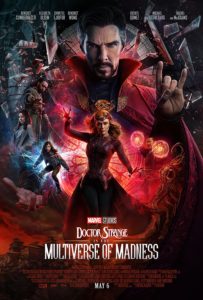
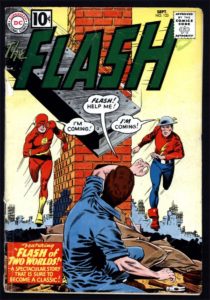
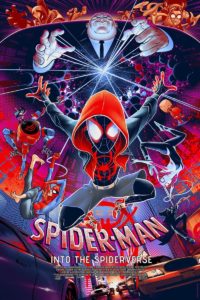
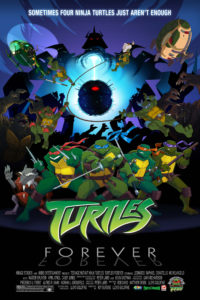
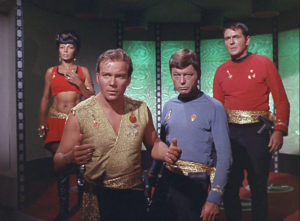
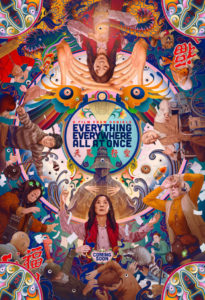
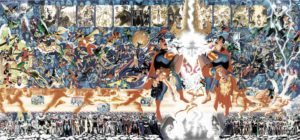
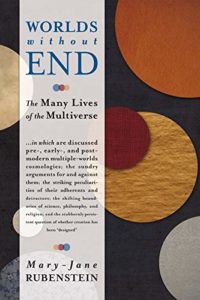
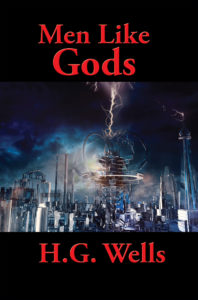


So many thoughts…
Often, when I hear R and his other 6 year old friend talking, they will be discussing the multiverse as an explanation for things in a way you might expect kids to talk about other physical phenomena.
The only thing I’d mention is that DC did it better than Marvel. Especially those early issues of Justice League where they did the annual summer crossover with the JSA. I was very young when they did the first Superman/SHAZAM crossover and didn’t get it the first time around, but that must have been monumental for older fans at the time.